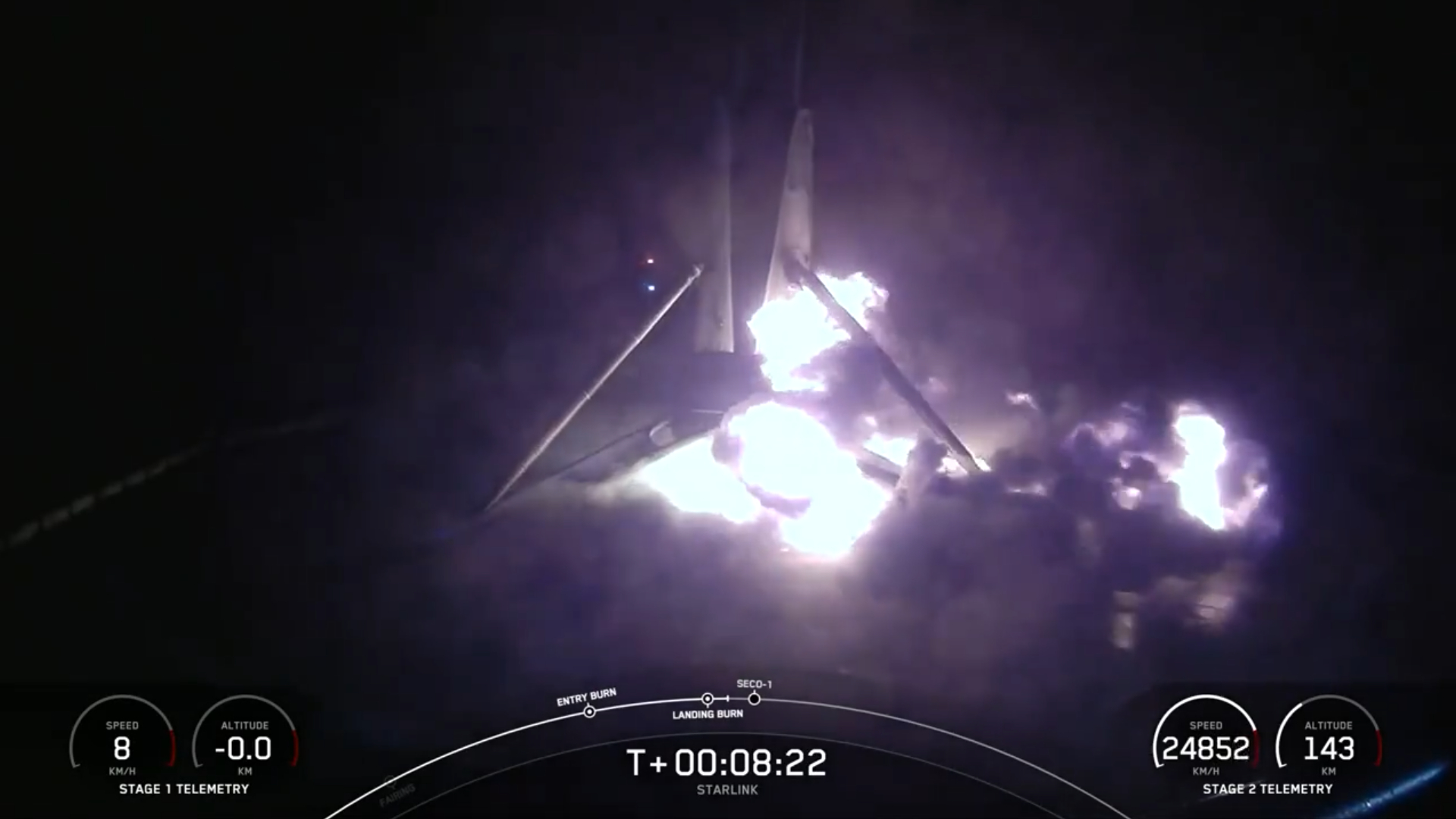
A SpaceX Falcon 9 rocket just set a new reusability record, on what may have been its final flight.
The Falcon 9 launched 21 of SpaceX's Starlink satellites today (Aug. 28), lifting off from Florida's Cape Canaveral Space Force Station at 3:48 a.m. EDT (0748 GMT). It was the 23rd mission for this rocket's first stage, setting a new mark for the company.
The rocket delivered the Starlink craft to low Earth orbit as planned, but the first-stage booster couldn't stick its landing. It touched down on a SpaceX drone ship in the Atlantic Ocean about 8.5 minutes after launch as planned but tipped over shortly thereafter. Video of the landing showed flames billowing from the rocket's base just before it toppled.
The incident was jarring, because SpaceX has made rocket landings — an exotic novelty just a few years ago — more or less routine. The company had aced 267 consecutive Falcon 9 or Falcon Heavy landings before today, according to Chris Bergin of NASASpaceflight.
Falcon 9 B1062 completes 23 missions but unfortunately topples over on ASOG. Before this, SpaceX had 267 successful Falcon booster landings in a row. Please note that they always expected to lose some boosters on landing; it was just crazy that they had such a run of successes. https://t.co/q6pRXA3ktf pic.twitter.com/yQySUlamWUAugust 28, 2024
Sixteen of the booster's 23 flights to date have been Starlink missions. But it also had two pioneering crewed efforts under its belt — Inspiration4, the first crewed orbital mission with no professional astronauts on board, and Ax-1, the first all-private astronaut flight to the International Space Station.
Related: Starlink satellite train: how to see and track it in the night sky

SpaceX has not declared the booster dead, saying in an X post that "teams are assessing the booster's flight data and status." But one Inspiration4 crewmate has already eulogized the vehicle.
"Our @SpaceX @inspiration4x booster (B1062) is no longer operational. Thank you for your service and the out-of-this-world memories! RIP," Sian Procter, who piloted Inspiration4, said in an X post this morning.
SpaceX had planned to launch another Starlink mission early this morning as well, from California's Vandenberg Space Force Base. But the company stood down from that launch to focus on the landing mishap.
Both of this morning's Starlink missions — the one that flew and the one that didn't — were relatively late additions to SpaceX's launch schedule. The company didn't publicly announce them until after it had stood down from the planned liftoff of Polaris Dawn, a private astronaut mission commanded and funded by Jared Isaacman, the billionaire entrepreneur behind Inspiration4.
SpaceX had aimed to launch Polaris Dawn at 3:38 a.m. EDT (0738 GMT) today but scrubbed that attempt due to unfavorable weather forecasts. The company hasn't announced a new target date for the mission, which will perform the first-ever private spacewalk, but has said it won't happen before Friday (Aug. 30) at the earliest.







